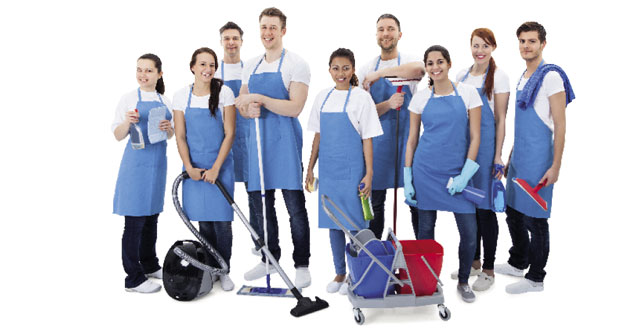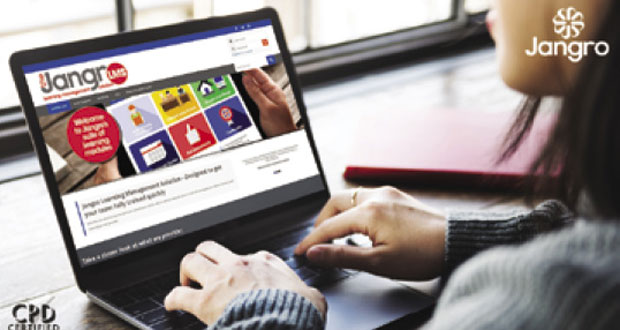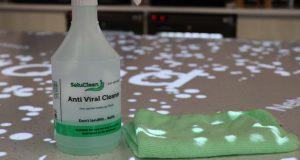Joanne Gilliard, CEO of Jangro, discusses how training within the cleaning sector is more important than ever and the many benefits to be had by employers and employees alike
According to recent research by the British Cleaning Council (BCC), there are approximately 1.63 million workers in the cleaning industry, making up around five per cent of the UK workforce. This is a significant number of people, many of whom have been operating on the frontline throughout the pandemic and have seen the valuable role they play in society finally applauded.
However, to perform their job safely and to a consistently excellent standard, ongoing, high quality and relevant training is required. Of course, this was true before the Coronavirus crisis, but the work of professional cleaning staff will be scrutinised like never before, once we emerge from tight lockdown restrictions.
At a time when customers’ expectations of cleanliness are higher than ever, training is integral to help uphold standards and, ultimately, influence where consumers spend their time and money.
NOT AN UNSKILLED PROFESSION
Due to its low pay and seeming lack of prospects, cleaning is often perceived as an easy, unskilled job. This could not be further from the truth. It is so much more than swilling a mop and bucket around the floor or giving a surface a quick wipe down.
In fact, cleaning can be hazardous and must be done properly to protect not only the wider public, but the staff themselves. For example, operatives working in areas where there are sharps (needles and other objects used to puncture the skin), must be trained how to manage them correctly, to reduce the risk of personal harm. Infection control is another area in which all staff should be knowledgeable, from protecting oneself whilst working with COVID-19 in general circulation, preventing it from spreading further, and knowing how to clean-up after a potential outbreak.
Another occupational hazard for cleaning staff is working with chemicals and fluids that may be harmful to health if they are not handled correctly. That’s why it’s important that workers are up to speed with and meet COSHH (Control of Substances Hazardous to Health) regulations.
From a legal perspective, businesses have a duty of care to ensure their employees’ health and safety, but the benefits far outweigh the investment required. A well-trained workforce will contribute to the bottom line, particularly in the current climate. Quality training helps operatives achieve best practice every time, enhancing a business’ image and making it a more attractive place to visit.
Additionally, training can also positively impact mental health and wellbeing. By investing in education, employers are placing value on the work undertaken, which can help boost both staff morale and productivity. From a business perspective, this has another knock-on advantage: higher staff loyalty and retention, resulting in reduced recruitment costs.
OVERCOMING BARRIERS TO LEARNING
In the past, one of the biggest obstacles was that training simply wasn’t very accessible. Traditional courses were taught classroom style; times and venues were fixed, which meant considerable costs were incurred. Businesses had to factor in travel expenses, the price of the courses themselves, as well as the cost of lost work (if sessions take place during working hours).
However, as the world has become more digitised, so too has training. In fact, e-learning has become invaluable over the past year, when it has just not been practical (or safe) to attend courses, with the social distancing measures that have been in place.
At Jangro we offer an award-winning e-learning system, called the Jangro Learning Management Solution (LMS), which has been accredited by the CPD Certification Service and is accessible to all of our customers and their employees. It covers a wide range of topics, with varying course lengths and users are able to train remotely at times that suit them. This allows cleaning operatives to dip in and out of short or longer sessions, making learning highly flexible and accessible.
Just some of the modules available are: Colour Coding & Infection Control, Health and Safety, Washroom Hygiene, Floor Care, and Kitchen Hygiene. COSHH is one of the most popular courses, and recently received an update to make it even more user friendly.
Since its launch in 2013, the LMS has grown phenomenally, enabling thousands of cleaning industry staff to perform their duties to a high standard, without risking their own health (or that of others). Testimonials include: ‘In-depth, expert information in each module means I have everything I need when it comes to training my staff’, ‘It’s so adaptable for me with my hours’, and ‘The important thing is all cleaners should be knowledgeable about the products they are using’.
This is something we couldn’t agree more with. Given the challenging conditions cleaning operatives currently face, empowering them with high quality training is the least we can do.






